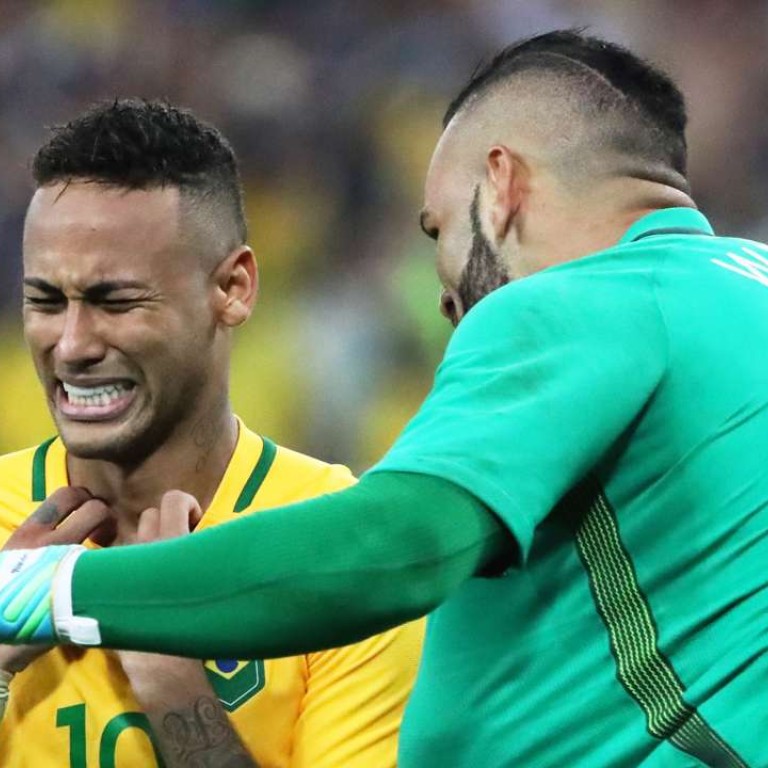
As the Olympic roadshow rolls out of town will Rio suffer from the after-party blues?
Disaster was avoided and, apart from a few stains, the Olympic Committee and Brazilian authorities are left to reflect on an Olympics that provided a rich tapestry of sporting highlights
The party no-one was really sure they wanted ended in Rio, with reluctant guests and financially straitened hosts warily declaring it a success, of sorts.
As the 2016 Olympics closed with a ceremony at the Maracana and workers at Galeao International Airport a few kilometres to the north prepared to handle the exodus, all involved were relieved that the Games – if not a roaring triumph – had at least avoided major disaster.
A few athletes and journalists were robbed. Some of the accommodation and venues were not perfect. Many tickets went unsold.
WATCH: golden moments on Day 16 at the Rio Olympics
But the most noteworthy negative headlines were the diving pool turning an alarming green, a window on a media bus being broken by what the IOC and police insisted was a rock and an American journalist insisted was a bullet, and guy-dude-bro swimmer Ryan Lochte causing an international incident by making up a wild story about being robbed that played on all the worst fears people had for these Games.
You suspect IOC president Thomas Bach would have taken that if offered it in July. “These were and still are iconic Olympic Games in many respects,” he insisted on Saturday.

They will be remembered for being the first in South America, but anything iconic came from the athletes.
Usain Bolt, again the fresh breeze temporarily blowing away clouds of cynicism and apathy that suffocate athletics, ascending among the immortals with his ‘triple-triple’ of nine sprint golds. Bach and IAAF counterparts may hyperventilate when the magnitude of his decision to quit the Olympics sinks in.
Michael Phelps, whose equally freakish genetics give him a similar disregard in water for the laws of friction and resistance that Bolt has in air, ensured the first week also had history-making feats. He too bows out, after adding five golds to the 18 he had and taking his medal total to 23.

Britain put Brexit blues on the backburner and surprised themselves with a record medal haul. Fiji’s magnificent rugby players ensured the country’s national anthem was played at an Olympics for a first time, winning gold in the Sevens with a display the islanders are probably still celebrating.
We in Hong Kong were left to curse an Australian cyclist, whose slight collision with Sarah Lee Wai-sze at 60km/h sent her and our medal hopes flying. Highlights – a swimming semi-final, a couple of ‘historic’ fencing wins, decent performances in table tennis and badminton – were minor in the grand scheme, but hopefully signal promise for Tokyo 2020. Of the 38 athletes, 24 are under 25 years old, and it was a first Olympics for 26. Most finished among the top 16 in their disciplines, some in the top 10.

For the hosts, three stories seemed a commentary on these Games. There was a gold for Rafaela da Silva, raised in the notorious City of God slum which Opening Ceremony director Fernando Meirelles depicted terrifyingly in his film of the same name. Thiago Braz da Silva (no relation) won a shock gold in the men’s pole vault, literally cheered on to new heights by his home crowd. And Barcelona superstar Neymar and little-known journeyman goalkeeper Weverton ensured that the country which lives for football won the only major trophy they were missing.


Less than half of Brazil’s population identifies as white, but the Olympic audience seemed almost exclusively so. Living in the Olympic bubble, ferried from Olympic venue to Olympic venue on Olympic buses through Olympic lanes, often the only people of colour you might encounter on any day would be drivers or security guards. The reason is simple and obvious: in a divided society, most black and mixed race people are poor, and the notion of paying up to half their monthly wage to catch the latest handball or modern pentathlon action is beyond laughable.
“The IOC has shown that it is possible to organise Olympic Games also in countries which are not at the top of the GDP,” beamed Bach. The members of his organisation get per diems of US$450 to US$900 depending on status, meaning they can make more than the average Brazilian earns in a year during their two-week jolly. Meanwhile, the Games rely on an army of unpaid volunteers whose only compensation is a packed lunch.

The next three winter and summer Olympics will be in Asia: Pyeongchang, Tokyo and Beijing, and it will be harder to come up with good scare stories. Paris, Rome or Los Angeles will likely host 2024, and though there is talk about Patagonia bidding for the 2026 Winter Games, the IOC may be loath to repeat their South America experiment.
Now the party is over, the clean-up and hangover begins. Some, mainly property developers behind the Athletes and Media Villages, Olympic Golf Course, may enjoy a lucrative aftermath. For most in Rio, the obscene amounts spent on the shindig will be felt for years, maybe decades.
A poll on Sunday said most Brazilians felt the Games had done more harm than good. Neymar’s winning penalty in the football might be one of the few positive memories in years to come. At US$12 billion, it’s an expensive souvenir.

